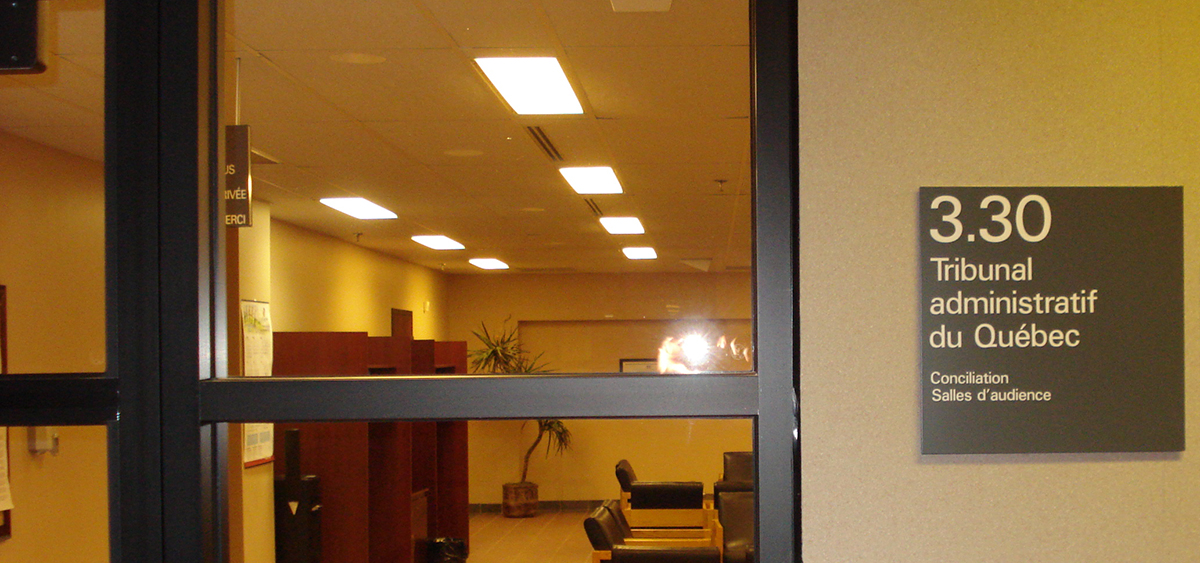The Government of Quebec must apply the law by taking thousands of administrative decisions everyday. In practice, civil servants are the ones that give or refuse to give a right, a sum of money or a service. When you believe that a civil servant made a mistake, in many cases, you can go before the Tribunal administratif du Québec (TAQ) to try and get it changed.
This tribunal was created to make the revision process quicker and more accessible. That meant specialized judges and a process that’s as simple as possible. That’s exactly what the TAQ offers.

The TAQ is subdivided into 4 divisions
Social Affairs Division
The social affairs division generally deals with a person’s right to claim one of several types of financial assistance allocated by a Quebec law. It also handles matters concerning the protection of persons whose mental state presents a danger, health services and social services, pension plans, compensation and certain aspects of immigration.
Immovable Property Division
This division mostly handles disputes relating to property assessment, property taxes and expropriation.
Territory and Environment Division
Administrative decisions about protection of the land and preservation of the environment can be contested in front of this division. It also handles decisions relating to the use of lots and farmland.
Economic Affairs Division
The economic affairs division mainly reviews authorizations, licences or certificates which are needed to carry on a trade (Ex: travel agents, pre-arranged funerals providers), or a business (Ex: tourist accommodation establishments).
The TAQ’s composition
The TAQ’s composition is one of its interesting traits. The TAQ’s judges are different from those of other courts. Their number and qualifications vary with the type of file examined.
Some cases are handled by a single judge. Other cases require a panel of two or three judges. The members of the tribunal can be lawyers, notaries, doctors, psychiatrists, social workers, psychologists or chartered appraisers.
Finally, it is important to remember that the TAQ doesn’t handle every decision made by ministries and administrative bodies. The law must specifically give the TAQ the right to do so. For example, if you are unhappy with the decision of the Director of youth protection, only the Court of Quebec can hear the case.







